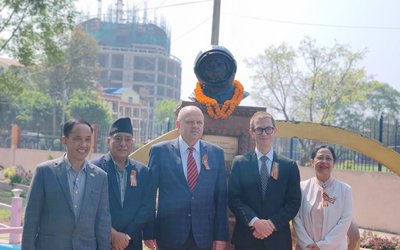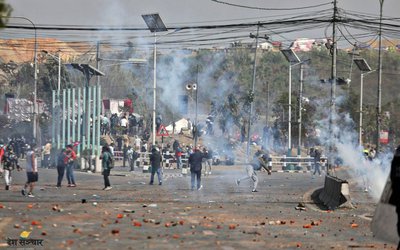More on News
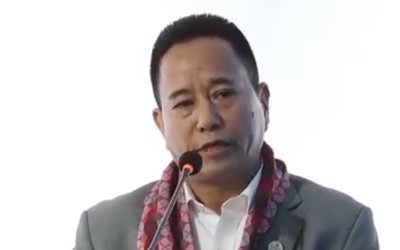
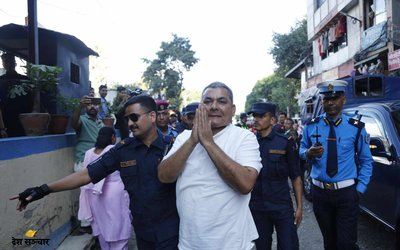

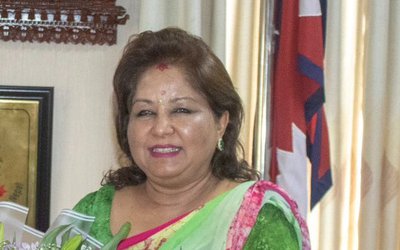
What will happen if the CA fails to produce a New Constitution by May 28, 2010? Let us examine the possible scenarios without being alarmed:
First, the CA will be dissolved suo motu and from May 28, CA members will be jobless.
The term of the CA is two years from the date of its first meeting held on May 29, 2009, unless otherwise dissolved earlier. CA's term may be extended for six months only by CA itself in the event that the task of drafting the constitution is not completed due to the proclamation of a State of Emergency (Article 64). Emergency cannot be imposed just to extend CA's term. All options to be adopted for getting a new legal framework would be unconstitutional simply because any move to amend the Constitution to extend its 'two year term' will be against the spirit of the Constitution and janaandolan. Moreover, the legislature has no power to increase its own life initially determined prior to the election. In the case of the Interim Constitution, the Article 64 has made it clear that it can only be dissolved earlier by a resolution. But from the date of its completion of two years’ term i.e. May 28, it is suo motu dissolved.
Second, the Interim Constitution will continue without CA, Legislature-Parliament and the Prime Minister.
Failure to write a constitution may impel the nation to opt for extra constitutional measures of governance. However, the consent of the President in his capacity as 'protector and defender of the constitution' will be essential for legitimizing such extra-constitutional moves. Therefore, the country has no other constitutional options except producing a new Constitution. The continuity of the Interim Constitution will not be acceptable forever, and the country without CA, legislature-parliament and Prime Minster is bound to invite bigger crises.
Third, the country may be plunged into an emergency situation.
The government may recommend to president, if all political parties agree, to declare 'emergency' prior to May 28 on grounds given in Article 143, and help CA stretch its term up to six months, through adoption of a resolution in the CA. This power of extension of CA's term is however given to only CA by the Interim Constitution. The legislature-parliament has no power to extend CA's term through constitutional amendment of Article 63. This emergency period may have then to be utilized for drafting the constitutional text. Is the president bound to endorse an unconditional advice of the legislature-parliament to extend the term of CA? Answer to this question can only be 'political', not 'constitutional'.
Fourth, the ceremonial President becomes an active Executive Head.
The key question ignored in the process, therefore, is the 'role and power' of the President. As Head of State, whose main responsibility is to 'protect and adhere to the constitution', the president may express his reservation to endorse a visibly extra-constitutional proposal for amendment, even if unanimously adopted by the legislature- parliament. Hence winning the confidence of the President for all parties concerned before such moves are taken is essential. Would not it be constitutionally and politically immoral for party leaders to request the president to extra constitutionally endorse an extra-constitutional resolution of the legislature-parliament to amend a constitutional provision to extend CA's term which only CA can extend but for six months only?
Fifth, the President as Head of State acts as “torch bearer” in national interest.
The Head of State is a 'torch bearer’ of the nation during crisis and remains to be the ultimate savior and device that automatically becomes active to diffuse a crisis in the interest of the people and nation. The faulty provisions of the Interim Constitution, which is a transitional legal framework of governance, has vested all 'executive powers' in the Council of Ministers, not in the President, except otherwise provided for by other constitutional provisions. Hence, all powers and responsibilities vested in the President do not have to be exercised in consultation with the Council of Ministers, as different institutional authorities are created to recommend to the President to exercise explicitly enumerated powers. In this situation, the President as ultimate seat of power has to be very careful in performing his unexplained constitutional responsibilities in the interest of the nation. After May 28, the President as 'torch bearer' and only elected civilian supreme authority has to be more responsible and accountable to the people and constitution. In absence of other elected institutions, President remains to be the only representative elected by CA to 'protect and defend' the constitution. He has to act in conformity with the prescribed constitutional responsibilities and relevant conventions in order to make sure that a new Constitution has been drafted at the earliest. He should never think about taking advantage of the vague constitutional provisions formulated for the transitional period.
Sixth, relevant international practices applicable for Head of State are attracted.
The only and the best option left for the political parties in the current situation is to start behaving responsibly and focusing on the main constitutional mission to establish peace and democracy through a new Constitution and Rule of law, as was done by most of the East European Countries while joining European Union, and by emerging new nations while establishing democratic norms, however, without compromising one's national sovereignty. Emerging post-conflict constitutional jurisprudence is not the same as normal constitutionalism that relies on constitutional supremacy, rule of law and the theory of limited government under democratic checks and balances. Management of a series of transitional legal framework adds complexities in the constitution and peace building process. Issues of ownership, public participation, social inclusion, social justice and restructuring of state under democratic form of government are not easy for a new constitution to accommodate as both process and substance demand a sensitive balance.
Dynamics of institutional transformation through legal framework requires careful handling of 'institutional gaps' in countries of transition. We still have time and the main task of the CA is to promulgate a new but very short basic democratic legal framework as stated in the Preamble and Art 63 (I) of the Interim Constitution and CPA. The details may be drawn by the institution created by the new constitution. Implementation of CPA with priority to resolve combatants and army related matters prior to drafting of constitution need special focus. Failure of the political parties to focus on its main task through consensus means heading towards a disaster for which the people will never forgive the responsible political parties. Now is the time for all, including international friends, to remember and remind the CA members the deadline of May 28, 2010.
Note
Generally political scientists and politicians differ with constitutional experts and lawyers on the real meaning of the words of the Constitution. The opinion of Constitutional Expert Dr. Surya Dhungel reproduced in this issue was published two years ago right before the expiry of Constituent Assembly's two year tenure on May 28, 2010. As Dr. Dhungel's opinion was confirmed by two subsequent judgments of the Supreme Court's special benches of five justices headed by the Chief Justice, this feature has been published again. If a new Constitution is promulgated by May 27, 2012, as promised by the Prime Minister and other Political Leaders, Nepal will enter into a new phase of political history under democratic republic. Otherwise, Dr. Dhungel's CONSTITUTIONAL OPINION may still be relevant if the Constituent Assembly fails to deliver a new Constitution without offering legitimate alternatives as indicated by the Supreme Court- New SPOTLIGHT.




